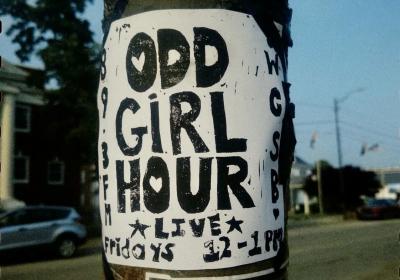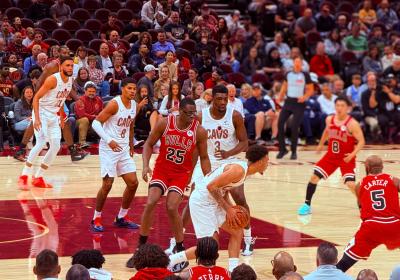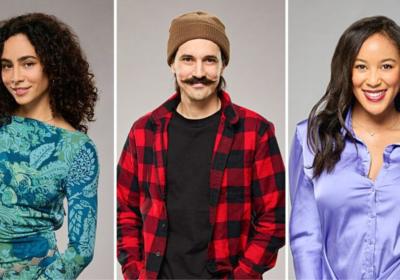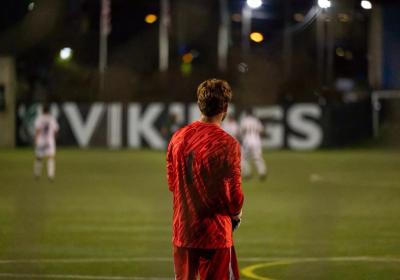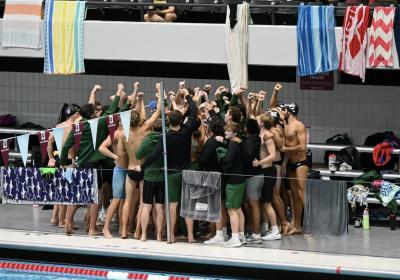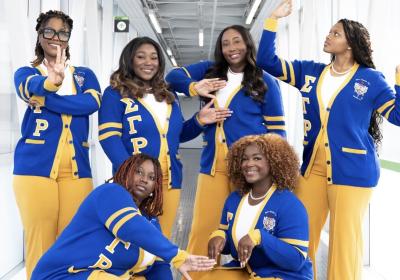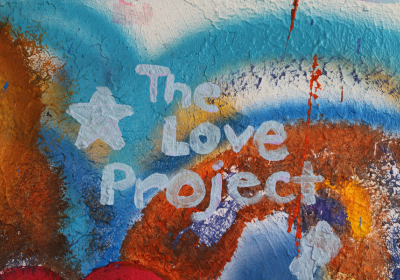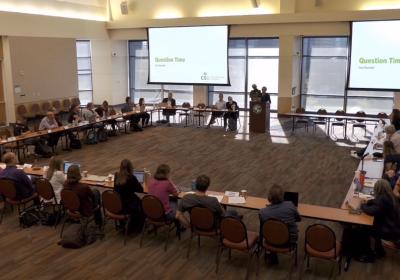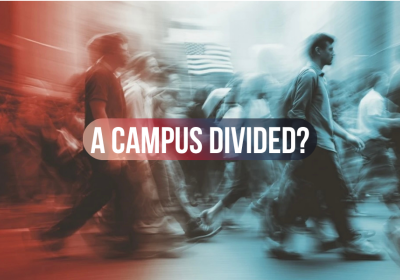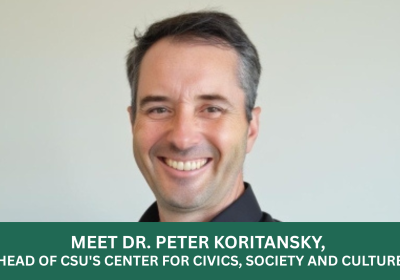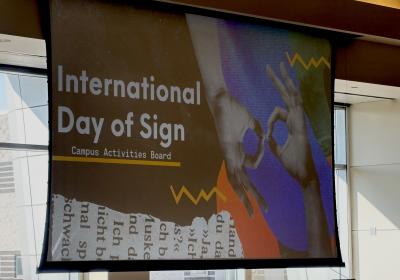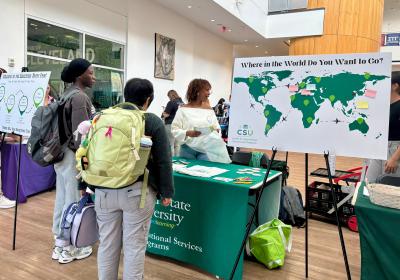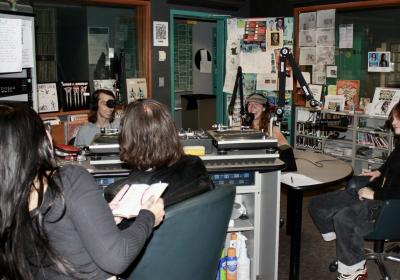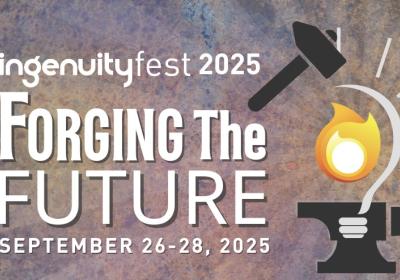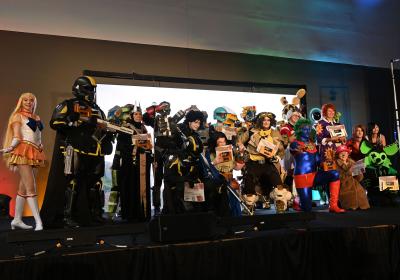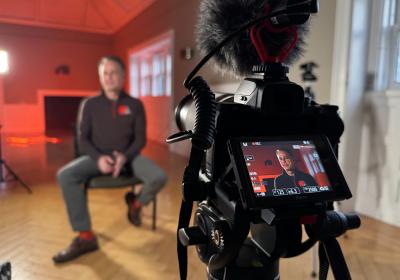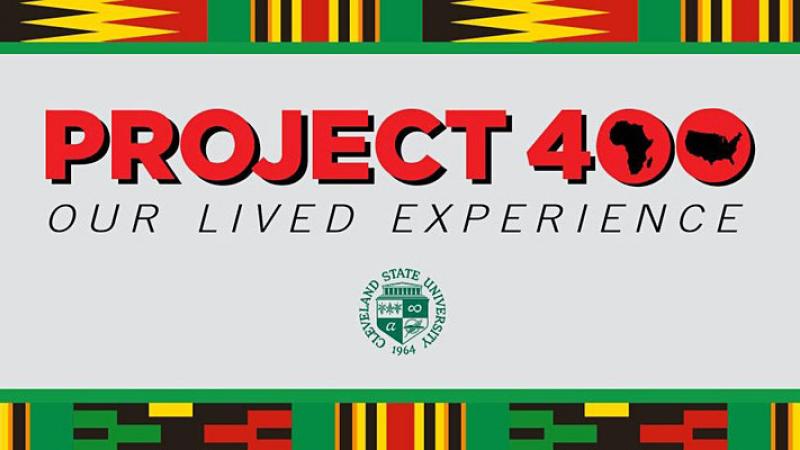
Project 400 addresses the twin pandemics of COVID-19 and racial injustice
Cleveland State University’s Division of Diversity, Inclusion and University Engagement held the 2nd annual Project 400 Conference virtually on Friday, Feb. 26 and Saturday, Feb. 27.
The two-day conference, with the theme “Confronting the Twin Pandemics: COVID-19 and Racial Injustices,” shed light on disparities magnified by the pandemic through its two keynote speakers, four panel discussions and four featured artists.
“Our project first kicked off in 2019 to advance understanding and shed light on a defining moment in our shared history, the 400th anniversary of the first Africans brought to North America in 1619 against their will,” CSU President Harlan Sands said as he introduced the conference.
The events of day one were laid out by Dr. Ronnie Dunn, Ph.D., who has a doctorate in Urban Studies from Cleveland State, and is the chair of the committee behind the Project 400 conference.
“Today we will focus on the global pandemic and the disparities it has illuminated,” Dr. Dunn, interim chief diversity and inclusion officer, said. “You will hear from expert panelists about what we’ve learned in relation to healthcare, education, technology and more. And how we can address some of the barriers to access in those areas thus reducing the disparities.”
Day one featured Jamil Smith, senior writer for Rolling Stone magazine and Cleveland native, as the keynote speaker. The day was also filled by two panel discussions about healthcare and disparities, and broken up with two artistic breaks by poets Ephraim Nehemiah and Darius Simpson.
Smith’s keynote speech touched on many topics that would become major themes throughout the conference as he looked at the history and impact of racism in police brutality, times of crisis, income gap, businesses and employment, digital divide and education.
“If we are not treating racism as a public health concern then we are doomed to repeat this cause the idea that there will not be another pandemic, or there’s the possibility of COVID variants becoming more and more serious, we’re going to be doing this for a while,” Smith said. “We need to reorganize our society around this and if we have the capability to do that, then we sure have the capability to address a lot of these systemic flaws at the heart of the American system.”
Next came the first artistic break of the day as Nehemiah performed three poems that hit on important issues of the divide of capitalism, parenting and the sexualization of young Black boys, and the relation of faith and family while being Black in America.
Gregory L. Hall, M.D., executive director of National Institute for African American Health, oversaw the healthcare panel as panelists spoke about the disparities they have witnessed in their field of expertise during COVID-19.
Panelists included Sherrie Dixon Williams, M.D. as a frontline pulmonary specialist; Johnie Chip Allen, a disease intervention specialist; Heather M. Rice, professor, researcher and pediatric nurse practitioner; and Cyleste C. Collins, M.A., M.S.W., Ph.D. from a background of psychology, anthropology and social work.
“This isn’t about me and mine, this is about we and our, in order to move forward, we need it to not just be Black and Brown people who are talking about these issues, but others as well,” Dr. Williams said.
She then spoke about the way to get comfortable and move forward by having equity and justice for all in healthcare and beyond and getting rid of disparities.
The second artistic break of the day came with Simpson who shared The Color of COVID video highlighting Black communities hit hardest by the virus and three poems that dealt with racism in American culture, police brutality and featuring his authentic Black voice.
Roland V. Anglin, dean of Maxine Goodman Levin College of Urban Affairs at CSU, headed the second panel of the day, Racial Inequities in the COVID-19 Era, with four areas of disparities including education, the digital divide, small businesses and poverty.
The expert panelists were Henry Pettiegrew, II, CEO of East Cleveland Schools; Joshua Edmonds, the director of Digital Equity and Inclusion in Detroit; Lucas Misera from the Federal Reserve of Cleveland; and Margaret Mitchell, president and CEO of Greater Cleveland YWCA.
“There is no short term solutions and yet there is short term opportunities for us to grab that low hanging fruit and make change immediately,” Mitchell said. “But we must take a long view as it relates to this work.”
Day two, with discussions on criminal justice, education and social justice, followed the same format as the first, starting off with former State Senator Nina Turner of Ohio as the keynote speaker.
Turner discussed the history of slavery in America, the wealth and wage gap, COVID-19 and social justice in her address.
Highlighting the fight for justice, she gave three steps: commit to addressing the twin pandemic, organize around the intersections of the pandemic to get resources to cities from leaders, and engage in politics for the government to take actions toward change.
“When we do the justice work for Black people, everybody benefits,” the former senator said.
For the day’s first artistic break, the music video for “Love One Another” by Tay Da Prince featuring John Legend was shown. Prince is a Cleveland native and nephew of famous singer-songwriter Legend.
Ayesha Bell Hardaway, assistant professor of law and co-director of the Social Justice Institute at Case Western Reserve University, introduced the criminal justice panelists: Dr. Dunn; Tim Black, associate professor in the department of sociology at CWRU; and Paul Butler, the Albert Brick Professor in Law at Georgetown University Law Center.
The panelists discussed the history of racism in criminal justice dating back to slavery, how debt in the criminal justice system plays into control, and prison abolition, respectively.
The final artistic break came from Daniel Gray-Kontar, executive artistic director at Twelve Literary Arts, performing four poems about African American history and culture, each of his grandparents’ stories of emigrating out of the south and Black woman magic.
The conference's concluding panel was chaired by Adrienne Gosselin, Ph.D., associate professor of African American literature and cultural studies at Cleveland State University. Panelists discussed how higher education addresses social justice.
These final panelists included four associate professors at CSU – Thomas L. Bynum, Karen Sotiropoulos, Twanda Greer-Medley and Mamadou M. Seck – Beth Nagy, an assistant lecturer in the college of urban affairs, and Janice A. Eatman-William, director of Wrap-Around and School Based FOCUS at Case.
“You see how large the systemic issues are and based upon that, people from one discipline will not have all the answers,” Greer-Medley said. “I think we have to work together to be able to, not only educate students or educate anyone who wants to learn more, but also to further any work or reach any solutions or innovations for problems whether it be in our campus communities, neighborhoods and everything. I think the work just requires it.

